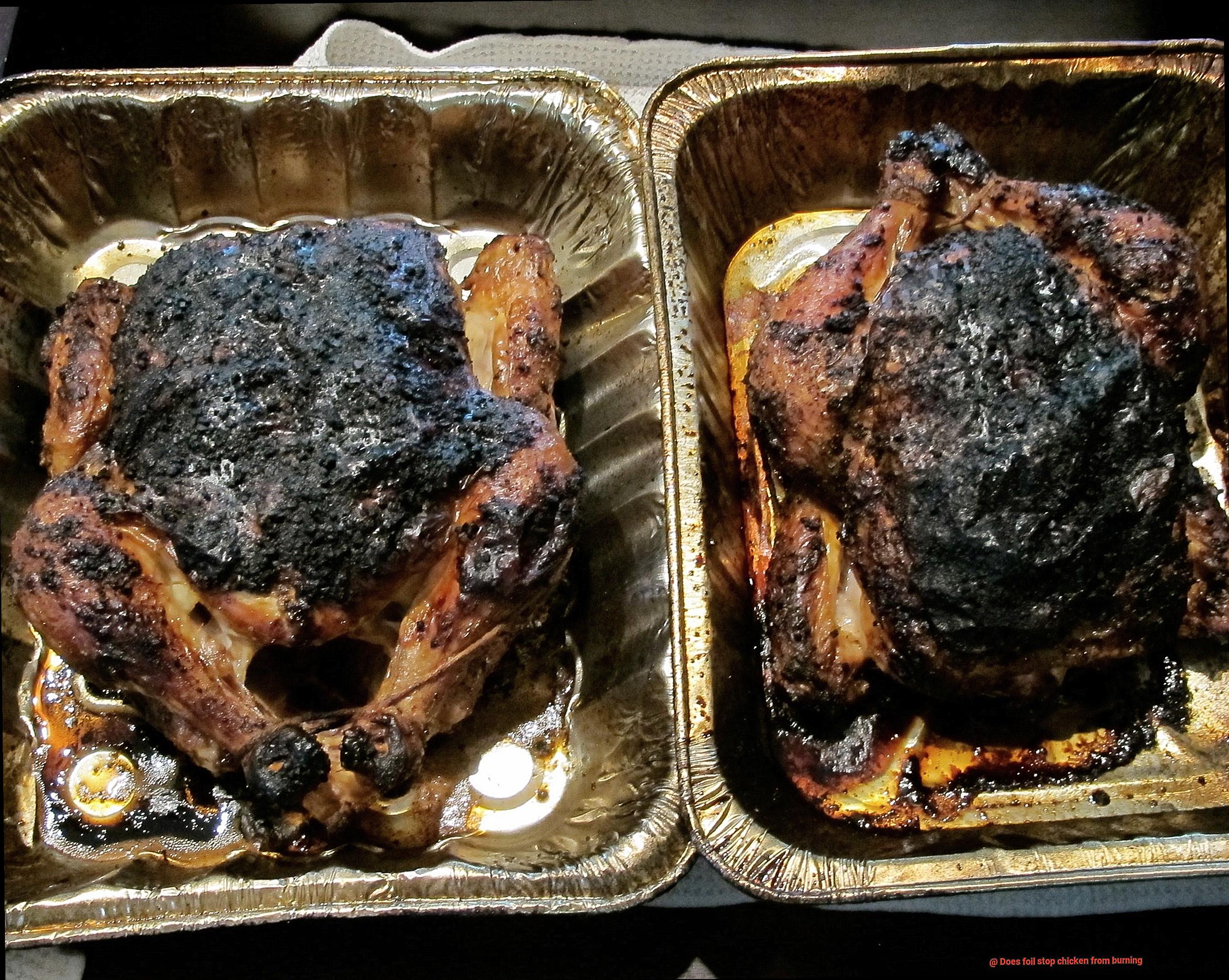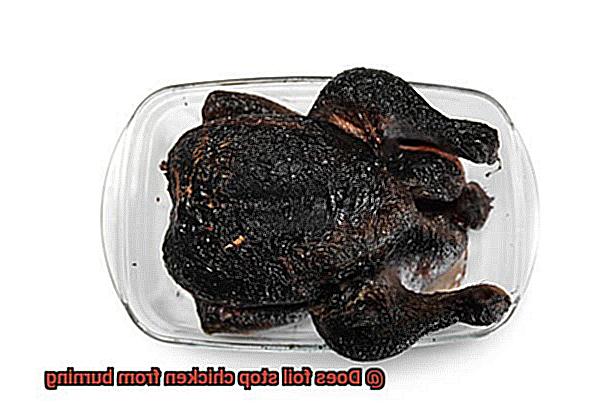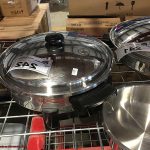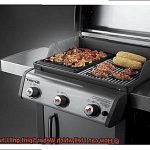Imagine this: you’ve spent hours prepping your chicken, carefully selecting the perfect blend of spices and herbs to create a mouth-watering masterpiece. You place it in the oven, eagerly anticipating the moment when you can sink your teeth into its tender flesh. But as time passes, you notice that the edges are starting to blacken and burn. Panic sets in as you wonder if all your hard work has gone up in flames.
But fear not, my fellow foodie friends. There’s a simple solution to this all-too-common kitchen conundrum – foil. Yes, that’s right – a humble sheet of aluminum foil can be the superhero that saves your chicken from burning.
But how does it work? What type of foil should you use? And is there anything else you need to know? In this blog post, we’ll explore the science behind using foil to prevent burning and share some top tips for achieving perfectly roasted chicken every time.
Whether you’re a seasoned pro or a newbie in the kitchen, this post is sure to help you elevate your roasting game and impress your dinner guests with juicy, succulent chicken. So grab a cup of coffee (or glass of wine) and let’s dive into the wonderful world of foil-wrapped poultry perfection.
Contents
What is Foil?
Foil, also known as aluminum foil, is a thin and pliable sheet of aluminum that is commonly used in cooking, baking, and grilling. It can withstand high temperatures, making it an ideal material for various cooking needs. Foil is made by rolling aluminum into thin sheets that are then processed and cut into different sizes. It is available in various thicknesses, with the most common being 0.016 millimeters thick.
One of the most popular uses of foil is when grilling chicken. By wrapping the chicken in foil, it acts as a barrier between the chicken and the direct heat of the grill, helping to prevent burning. However, it’s important to note that using foil can also prevent the chicken from getting those coveted grill marks and a crispy exterior.
To use foil effectively when grilling chicken, wrap the chicken tightly and leave some space for air to circulate. This will ensure that the chicken cooks evenly without sticking to the foil. Alternatively, consider using a grill pan or grilling basket lined with foil instead of directly wrapping the chicken in foil.
But don’t rely solely on foil to prevent burning. Other factors such as cooking time, temperature, and marinade can all play a role in whether or not the chicken burns on the grill.
Aside from its use in cooking, foil has other applications such as insulation, packaging, and even art. It is a popular material for creating origami and other paper crafts due to its malleability.
Does Foil Stop Chicken from Burning?
Picture this: you’ve spent all day marinating your chicken, prepping your grill, and getting ready for the perfect BBQ. But as soon as you start cooking, disaster strikes – your chicken is burning. Fear not, because there’s a simple solution that many people turn to: foil. But does foil really stop chicken from burning? As an expert on the subject, let me break it down for you.
The problem with grilling chicken is that the direct heat source can be too much for it to handle. This causes the outside to cook too quickly while the inside remains raw and unpleasant. That’s where foil comes in – it acts as a buffer between your chicken and the heat source, slowing down the cooking process and allowing for more even cooking. The result? Juicier, more flavorful chicken that is less likely to burn.
But wait, there’s more. Foil also helps to trap in moisture, which can make your chicken even more succulent. And don’t think that foil is just for grilling – you can use it in the oven to achieve similar results.
Of course, there are potential downsides to using foil. If it’s not properly secured or has any holes in it, juices from the chicken can leak out and cause flare-ups on the grill. This can be a fire hazard and lead to uneven cooking. Additionally, since foil slows down the cooking process, it may take longer for your chicken to cook.
So, does foil stop chicken from burning? Yes, it definitely can be an effective tool for preventing burnt chicken. However, it’s important to wrap it tightly and leave some space for air to circulate. And don’t forget about other factors like cooking time and temperature that can affect the outcome of your culinary creation.
Factors to Consider When Using Foil
First and foremost, not all foil is created equal. To ensure durability and prevent tearing or puncturing during cooking, it’s best to use heavy-duty aluminum foil.
Next up, placement is key. Placing the foil directly on the grill grates can actually increase the risk of burning. Instead, create a makeshift tray by folding up the edges of the foil to create walls around the chicken. This will keep it elevated and away from direct heat while still allowing for even cooking.
But don’t forget to keep an eye on the temperature of your grill. Even with foil in place, if the heat is too high, your chicken may still burn. Aim for medium heat and adjust as needed throughout the cooking process.
It’s also important to note that while foil can be a helpful tool in preventing burnt chicken, it’s not a foolproof solution. Keep a close eye on your chicken throughout the cooking process and adjust as needed.
Tips for Wrapping Chicken in Foil
Wrapping your chicken in foil is a foolproof way to ensure that it stays moist and flavorful. Here are five essential tips for wrapping chicken in foil:
Use Heavy-Duty Foil
Opt for heavy-duty foil instead of regular foil to prevent the chicken from tearing through the foil while cooking. Heavy-duty foil is thicker and more durable, providing better protection against heat and flames.
Season Your Chicken

Before wrapping the chicken, season it with your favorite herbs, spices, or seasoning blends. This will add flavor to the meat and prevent it from becoming bland.
Create a Tight Seal
To keep the chicken moist and prevent it from drying out while cooking, make sure to create a tight seal around the edges of the foil. This will trap in moisture and prevent steam or air from escaping.
Cook on Indirect Heat
Place your foil-wrapped chicken on the grill over indirect heat to prevent burning. This method cooks the chicken evenly without exposing it directly to flames or heat sources.
Let it Rest
After removing the chicken from the grill or oven, let it rest for a few minutes before serving. This allows the juices to settle back into the meat, making it more tender and juicy.
Benefits of Using Foil When Grilling Chicken
Grilling chicken can be a daunting task, but using foil can make it a breeze and enhance the taste of your chicken. As an expert in this area, I have found that using foil when grilling chicken has several benefits that can impress your guests and make your grilling experience hassle-free.
One of the main advantages of using foil when grilling chicken is that it prevents burning. Wrapping your chicken in foil creates a barrier between the heat source and the chicken, allowing it to cook evenly without getting charred or overcooked. This means you can sit back, relax and enjoy your grilling experience, knowing that your chicken will be perfectly cooked.
Another benefit of using foil is that it helps retain moisture. Chicken tends to dry out quickly on the grill, but wrapping it in foil helps trap in the natural juices and flavor. This results in a more tender and flavorful chicken that is guaranteed to impress your guests. Your guests will be amazed by how juicy and flavorful your grilled chicken is.
Cleanup is another advantage of using foil when grilling chicken. After you’re finished grilling, simply remove the foil and discard it. This eliminates the need for scrubbing the grill grates, which can be a time-consuming and messy task. You’ll be able to spend more time enjoying your meal and less time cleaning up.
Lastly, using foil can help prevent flare-ups on the grill. Flare-ups occur when fat drips onto the flames, causing your chicken to burn and taste charred. Wrapping your chicken in foil can help prevent these flare-ups and keep your chicken moist and delicious.
Disadvantages of Wrapping Chicken in Foil
Grilling chicken is a mouth-watering way to cook this protein-packed food. Unfortunately, it also comes with risks such as the possibility of burning, flare-ups, and the time-consuming task of cleaning the grill grates. It’s no wonder that people are always on the lookout for new methods to make grilling easier. One such method that has been popularized is wrapping chicken in foil. While it may seem like a good idea, there are a few disadvantages to consider.
Firstly, wrapping chicken in foil can result in uneven cooking. The foil creates a barrier between the meat and the grill, preventing it from cooking evenly. This can lead to portions of the chicken being overcooked or undercooked. If you’re looking for perfectly cooked chicken that is juicy and flavorful throughout, then this method may not be the best choice.
Secondly, wrapping chicken in foil can also result in steaming rather than grilling. Foil traps in moisture, which can cause the chicken to steam rather than grill. This results in a loss of flavor and texture, as well as a lack of that desirable charred flavor that comes with grilling. Imagine biting into a piece of chicken that lacks the smoky charred flavor that makes grilled chicken so irresistible.
Lastly, wrapping chicken in foil can be a fire hazard. If the foil is not properly secured or if it comes into contact with an open flame, it can catch fire. Not only does this pose a risk to the food being grilled, but also to those around the grill.
In conclusion, while wrapping chicken in foil may seem like a quick fix to prevent burning and make grilling easier, it may not be the best option for achieving the desired flavor and texture of grilled chicken. If you’re looking for perfect grilled chicken with crispy skin and tender meat, try skipping the foil and enjoy the authentic taste of grilled meat instead. Remember to consider these disadvantages before deciding on a cooking method. To summarize, here are the three main disadvantages of wrapping chicken in foil:
Alternatives to Wrapping Chicken in Foil
Fear not, for there are many alternatives to foil that can help you achieve the same result without sacrificing flavor or texture.
One alternative is indirect grilling. This method involves placing the chicken on the cooler side of the grill, with the hotter burners on the opposite side. Not only does this method prevent burning, but it also helps the chicken cook slowly and evenly, resulting in tender, juicy meat.
Another option is to marinate your chicken before grilling. Marinades not only add flavor but can also create a barrier that prevents burning. Using acidic ingredients like vinegar or citrus juice can also help break down tough fibers in the meat, making it more tender.
Another alternative is to use a rub or seasoning blend on your chicken. The spices and herbs in the rub will not only add flavor but also help protect the meat from direct heat.
Finally, consider using a barbecue sauce or glaze during the last few minutes of cooking. This not only adds flavor but also creates a barrier between the meat and direct heat, preventing burning.
Conclusion
Using foil to prevent your chicken from burning is a game-changer. It acts as a buffer between the heat source and the meat, slowing down the cooking process and allowing for more even cooking. Additionally, it helps trap in moisture, making your chicken more succulent and flavorful. However, it’s important to note that foil is not foolproof – other factors like cooking time, temperature, and marinade can also affect the outcome of your culinary creation.
To ensure success when using foil, make sure to use heavy-duty aluminum foil to prevent tearing or puncturing during cooking. Proper placement is also crucial – create a makeshift tray by folding up the edges of the foil to create walls around the chicken. This will keep it elevated and away from direct heat while still allowing for even cooking.
While wrapping your chicken in foil has some disadvantages such as uneven cooking, steaming rather than grilling, and fire hazards if not properly secured or has any holes in it, there are many alternatives available. You can try indirect grilling, marinating your chicken before grilling, using a rub or seasoning blend on your chicken, or using a barbecue sauce or glaze during the last few minutes of cooking.
In summary, whether you choose to use foil or one of its alternatives when grilling or roasting chicken ultimately depends on personal preference.






